5 essential African safari tips
Going on safari in Africa can be an exciting, yet somehow scary experience the first time. It is the ultimate venture into the wild and unchartered territory of a less populated and less developed continent. And of course, there is the wildlife to consider…
In order to make the most of your safari experience, we have come up with 5 ‘Top Tips’ for first time safari travellers.
 1. Know the best time of year to go on safari
This safari tip is crucial, as the time of year largely determines the quality of wildlife viewing. Dry season in most of sub-Saharan Africa runs from roughly July until October, with some variations in weather patterns depending on the country. Shoulder seasons often provide a good balance between getting better rates, fewer crowds, and great wildlife sightings. Make sure you check up to date weather patterns with a local guide or operator on the ground in the country you are visiting.
1. Know the best time of year to go on safari
This safari tip is crucial, as the time of year largely determines the quality of wildlife viewing. Dry season in most of sub-Saharan Africa runs from roughly July until October, with some variations in weather patterns depending on the country. Shoulder seasons often provide a good balance between getting better rates, fewer crowds, and great wildlife sightings. Make sure you check up to date weather patterns with a local guide or operator on the ground in the country you are visiting.
 2. Pack only light neutral coloured clothing
Traditional safari outfits actually have a logic behind them. Some wildlife are attracted to bright reds, navy, and black. These include smaller annoying wildlife like Tsetse flies as well as larger, dangerous wildlife. In addition, it gets quite hot in mid-day during most safaris and lighter coloured clothes reflect the light effectively, keeping the body cooler.
2. Pack only light neutral coloured clothing
Traditional safari outfits actually have a logic behind them. Some wildlife are attracted to bright reds, navy, and black. These include smaller annoying wildlife like Tsetse flies as well as larger, dangerous wildlife. In addition, it gets quite hot in mid-day during most safaris and lighter coloured clothes reflect the light effectively, keeping the body cooler.
 3. Bring boots to cover ankles
In the bush, all kinds of creatures are crawling everywhere. There is dust and sand on most footpaths, and lots of things that bite. Ankle or even knee high boots avert the discomfort related to ankle bites and avoid turning your shoes into a sandbox. Highly recommended.
3. Bring boots to cover ankles
In the bush, all kinds of creatures are crawling everywhere. There is dust and sand on most footpaths, and lots of things that bite. Ankle or even knee high boots avert the discomfort related to ankle bites and avoid turning your shoes into a sandbox. Highly recommended.
 4. Be prepared to wake up early
In Africa, wild animals are most active during the coolest times of day – so before sunrise and after sunset. Night drives are not universally allowed in the parks, so you will definitely be waking up around 5.30am to have a quick cup of coffee or tea before setting off on your first game drive.
4. Be prepared to wake up early
In Africa, wild animals are most active during the coolest times of day – so before sunrise and after sunset. Night drives are not universally allowed in the parks, so you will definitely be waking up around 5.30am to have a quick cup of coffee or tea before setting off on your first game drive.
 5. Ensure your personal safety
When venturing out into the wild where predators roam freely, it’s absolutely crucial to ensure your personal safety. Each camp manager will offer safety briefings, and it is very rare that a client gets hurt if they behave according exactly the guidelines of the camp managers. Read up on the behaviours of specific wildlife and never walk around randomly or god forbid fall asleep (it’s happened, seriously) in the parks.
5. Ensure your personal safety
When venturing out into the wild where predators roam freely, it’s absolutely crucial to ensure your personal safety. Each camp manager will offer safety briefings, and it is very rare that a client gets hurt if they behave according exactly the guidelines of the camp managers. Read up on the behaviours of specific wildlife and never walk around randomly or god forbid fall asleep (it’s happened, seriously) in the parks.
 Willow Constantine is the Founder of Bespoke Safari Co. Bespoke Safari Co. is a boutique travel agency offering cutting edge curated travel experiences in Africa.
If you would like to be a guest blogger on A Luxury Travel Blog in order to raise your profile, please contact us.
Willow Constantine is the Founder of Bespoke Safari Co. Bespoke Safari Co. is a boutique travel agency offering cutting edge curated travel experiences in Africa.
If you would like to be a guest blogger on A Luxury Travel Blog in order to raise your profile, please contact us.
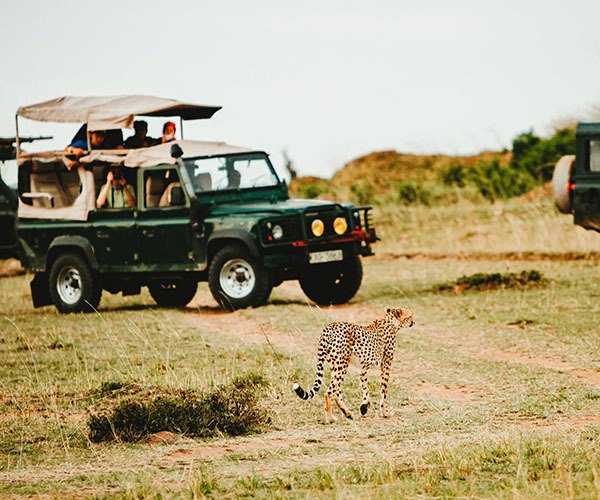 1. Know the best time of year to go on safari
This safari tip is crucial, as the time of year largely determines the quality of wildlife viewing. Dry season in most of sub-Saharan Africa runs from roughly July until October, with some variations in weather patterns depending on the country. Shoulder seasons often provide a good balance between getting better rates, fewer crowds, and great wildlife sightings. Make sure you check up to date weather patterns with a local guide or operator on the ground in the country you are visiting.
1. Know the best time of year to go on safari
This safari tip is crucial, as the time of year largely determines the quality of wildlife viewing. Dry season in most of sub-Saharan Africa runs from roughly July until October, with some variations in weather patterns depending on the country. Shoulder seasons often provide a good balance between getting better rates, fewer crowds, and great wildlife sightings. Make sure you check up to date weather patterns with a local guide or operator on the ground in the country you are visiting.
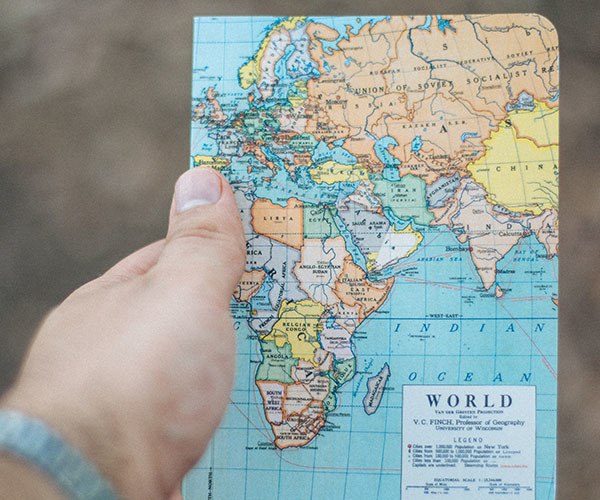 2. Pack only light neutral coloured clothing
Traditional safari outfits actually have a logic behind them. Some wildlife are attracted to bright reds, navy, and black. These include smaller annoying wildlife like Tsetse flies as well as larger, dangerous wildlife. In addition, it gets quite hot in mid-day during most safaris and lighter coloured clothes reflect the light effectively, keeping the body cooler.
2. Pack only light neutral coloured clothing
Traditional safari outfits actually have a logic behind them. Some wildlife are attracted to bright reds, navy, and black. These include smaller annoying wildlife like Tsetse flies as well as larger, dangerous wildlife. In addition, it gets quite hot in mid-day during most safaris and lighter coloured clothes reflect the light effectively, keeping the body cooler.
 3. Bring boots to cover ankles
In the bush, all kinds of creatures are crawling everywhere. There is dust and sand on most footpaths, and lots of things that bite. Ankle or even knee high boots avert the discomfort related to ankle bites and avoid turning your shoes into a sandbox. Highly recommended.
3. Bring boots to cover ankles
In the bush, all kinds of creatures are crawling everywhere. There is dust and sand on most footpaths, and lots of things that bite. Ankle or even knee high boots avert the discomfort related to ankle bites and avoid turning your shoes into a sandbox. Highly recommended.
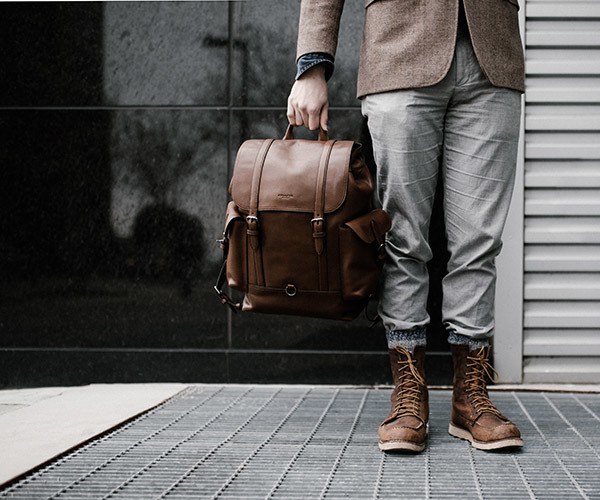 4. Be prepared to wake up early
In Africa, wild animals are most active during the coolest times of day – so before sunrise and after sunset. Night drives are not universally allowed in the parks, so you will definitely be waking up around 5.30am to have a quick cup of coffee or tea before setting off on your first game drive.
4. Be prepared to wake up early
In Africa, wild animals are most active during the coolest times of day – so before sunrise and after sunset. Night drives are not universally allowed in the parks, so you will definitely be waking up around 5.30am to have a quick cup of coffee or tea before setting off on your first game drive.
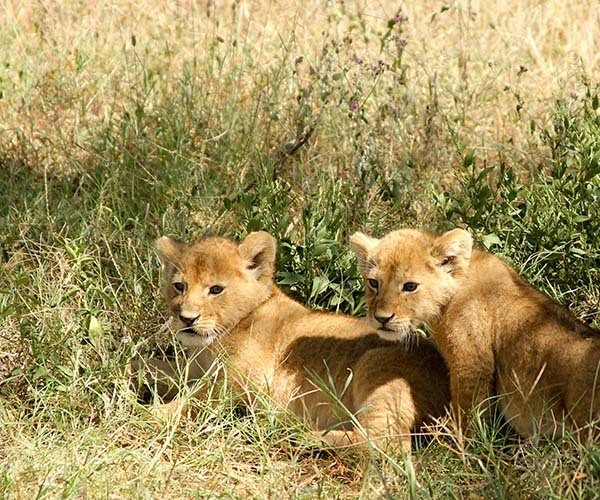 5. Ensure your personal safety
When venturing out into the wild where predators roam freely, it’s absolutely crucial to ensure your personal safety. Each camp manager will offer safety briefings, and it is very rare that a client gets hurt if they behave according exactly the guidelines of the camp managers. Read up on the behaviours of specific wildlife and never walk around randomly or god forbid fall asleep (it’s happened, seriously) in the parks.
5. Ensure your personal safety
When venturing out into the wild where predators roam freely, it’s absolutely crucial to ensure your personal safety. Each camp manager will offer safety briefings, and it is very rare that a client gets hurt if they behave according exactly the guidelines of the camp managers. Read up on the behaviours of specific wildlife and never walk around randomly or god forbid fall asleep (it’s happened, seriously) in the parks.
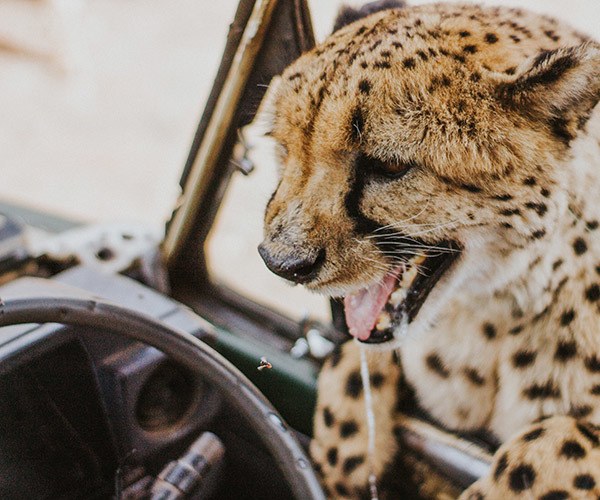 Willow Constantine is the Founder of Bespoke Safari Co. Bespoke Safari Co. is a boutique travel agency offering cutting edge curated travel experiences in Africa.
If you would like to be a guest blogger on A Luxury Travel Blog in order to raise your profile, please contact us.
Willow Constantine is the Founder of Bespoke Safari Co. Bespoke Safari Co. is a boutique travel agency offering cutting edge curated travel experiences in Africa.
If you would like to be a guest blogger on A Luxury Travel Blog in order to raise your profile, please contact us.Did you enjoy this article?
Receive similar content direct to your inbox.


My wife is a teacher and gets a good holiday at Easter, three weeks. She’s only ever been on safari to Kenya and is desperate to do another one. Is it worth going on safari in Africa in April? Does that come within shoulder season? Is there anywhere in particular that you would recommend for that time of year?
Michael that is a good question. April and May bring the long rains to East Africa, so that area comes alive with abundant birds but the bigger game is more dispersed due to abundant water and food. However, Namibia and South Africa are just at the very beginning of shoulder season that time of year and temperate weather awaits as the bush just begins to dry up making game viewing a bit easier. It can also be a nice time of year to see Victoria Falls and potentially the zebra migration in Botswana. It would be wise to double check early in the year on current weather patterns as shoulder season is always a little tricky with safari design!
Following on from the comments above what sort of rain is it during the rainy season? Is it typical tropical rain with short heavy torrential showers or does it hang about for hours on end? I like the idea of saving a bit of money on prices during the shoulder season and also perhaps a few less people around as its off peak.
During the heavy rains, during a typical season the rainfall is heavy with breaks in between. Which isnt problematic except that food and water is widespread, making wildlife difficult to find and because of the greenery tough to spot – except birds of course which are incredible in green season.
Each country differs in terms of shoulder season but generally it would be as follows:
East Africa – June, early November to early December, February and March.
Botswana – May, June, November, and February
South Africa – May, June, November, January to March
Yes, I think you have to accept that you are going to live on a safari time zone. You just have to get up early, no point going if you don’t. I’ve been on a safari where one woman said she needed her beauty sleep and didn’t do a single morning drive. If you can nap in the middle of the day, perhaps snoozing by the pool, it’s a good way of catching up on some sleep. It can all be a bit difficult if your body clock is already jet-lagged from the journey but at the end of the day it is worth making a few sacrifices for a wonderful experience.
Lynne you are so right! A safari is very expensive due to the necessity of conservation fees, logistics of running a remote lodge etc. It would be a pity to miss a single drive because of the need to sleep as travelers are best advised to harmonize their sleep rhythms with the wildlife – active in early morning and late afternoon, sleep and eat at mid day.
Talking of what to wear I would put in a couple of extra layers. I’ve been to the Kalahari and it can drop down to – 10 C on some nights. I’ve never been there when its dropped that low but I’ve done some early morning game drives when it has been very chilly. Some game drives provide you with blankets but if you get out of the vehicle for a walk you’ll be glad that you’ve taken a jumper or two.
That is a really important point I had to leave out in this blog so thank you for bringing that up. It gets extremely cold between wind and early morning and late afternoon temperatures dropping so bringing warm layers is crucial.
I would need a whole new wardrobe for going on a safari I think, I don’t seem to own any light neutral coloured clothes. Really good pointers for common sense safety and preparation. It’s hard to imagine people falling asleep in the parks though, I think I’d be too hyped up on alert to blink for longer than a second let alone take a power nap!
Most people have to get one or two things in order to cater for the lighter colors, sun protection, and light weight requirements of fabrics in hot weather – but these are all great for worldwide travel so why not?! It’s a true story that someone actually fell asleep at a watering hole once and he was eaten by a sneaky leopard. It’s good to realize that you are in the wild when there are untamed animals running freely….